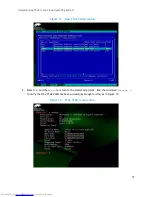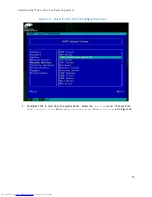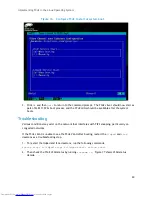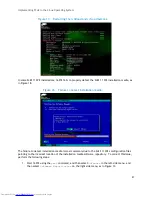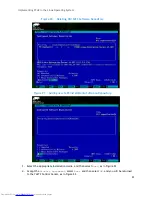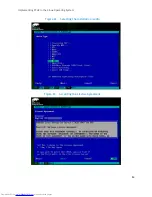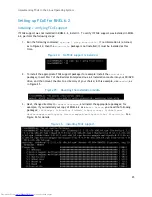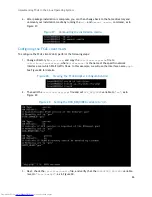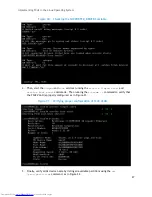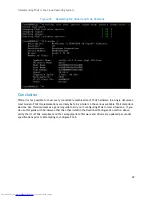
Implementing FCoE in the Linux Operating System
28
Verifying LUNs availability.
Figure 32.
Partition and mount your FCoE LUNs as any other hard disk device.
Configure the FCoE client to start at boot
If you want the FCoE client to start and the FCoE LUNs to automatically be available after every
reboot, configure the appropriate services using
chkconfig
. To do this, perform the following steps:
1.
To enable FCoE at boot time, run the following commands:
chkconfig lldpad on
and
chkconfig fcoe on
, as in Figure 33.
Configuring FCoE to start at system boot.
Figure 33.
2.
Verify that the services are set to start at boot by running
chkconfig --list | grep
lldpad
and
chkconfig --list | grep fcoe
, as in Figure 34.
Verifying that FCoE services are configured to start at boot time
Figure 34.
Troubleshooting
It is possible for other various conditions to exist on the network that can interfere with FIPS snooping,
particularly on congested networks. If the FCoE client is unable to see the FCoE VLAN after booting, it
is recommend to restart the
lldpad
and
fcoe
daemons as a troubleshooting step.
1.
To restart the
lldpad
and
fcoe
daemons, run the following commands:
service fcoe stop; service lldpad stop; service lldpad start; service fcoe
start
Then check the FCoE VLAN status by running
fcoeadm -i
. See Figure 35 for details.




